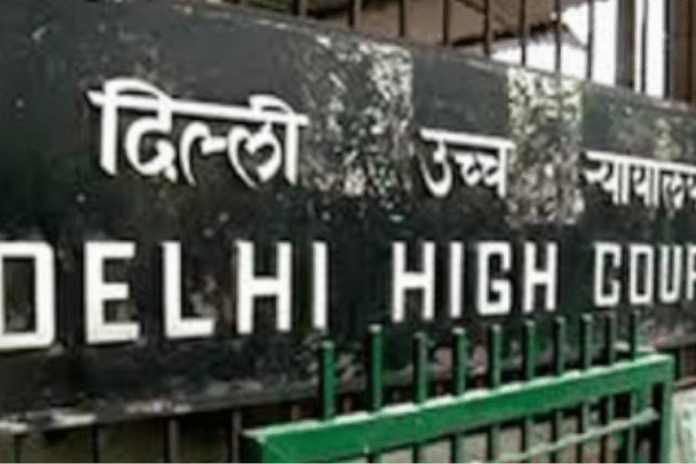New Delhi: The Delhi High Court held Monday that foreign nationals, as well as Indian citizens, can make use of the Right to Information (RTI) Act.
A single-judge bench of Justice Pratibha Singh, while allowing an RTI application, said that denial of such information would be in violation of the RTI Act and constitutional principles.
The high court was hearing a plea filed by A.S. Rawat, a public information officer (PIO) employed by the Central Tibetan Schools Administration. Rawat had challenged an order of the Central Information Commission (CIC) that imposed a penalty of Rs 2,500 on him for not disclosing information under the act to Dawa Tashi, a Tibetan national and teacher at a school in Darjeeling.
While the court upheld the CIC order to provide point-wise information to Tashi, it set aside the Rs 2,500 penalty, saying Rawat’s intention had not been “malicious”.
To deny Tashi’s RTI application, Rawat had relied on a provision of the RTI Act that refers to “citizens” having the right to information and doesn’t mention foreign nationals. But the judge emphasised that while the Constitution grants a bouquet of rights to citizens, it also gives some special rights to non-citizens, such as Overseas Citizen of India cards, refugee status, and visas.
“In all these situations, non-citizens would have an interface with public authorities, and to put an absolute bar would be contrary to the principles enshrined in the Constitution of India, which recognises some rights for even non-citizens,” she said.
She added that, since the RTI Act also puts an emphasis on speedy access to information (within 48 hours), the denial of such information to non-citizens would be contrary to the act’s ideals.
Also Read: Very offensive’ — same-sex marriage petitioners slam Modi govt’s ‘psychology of child’ stand in SC
‘Not a prohibition against non-citizens’
In 2014, Tashi had filed an RTI application seeking clarification about his job and other benefits. He also sought to know if Tibetan nationals born in India between 26 January 1950 and 1 July 1987 would be entitled to Indian citizenship. He was relying on Article 3 (1) of the Citizenship Act, which provides for children born in the country during this period to be classified as Indian citizens.
After Rawat denied his application, Tashi approached the appellate authority the same year and it confirmed the order. However, on a subsequent appeal, the CIC in 2016 ordered that the information be granted. Rawat then approached the Delhi High Court, which gave its judgment Monday.
Rawat had denied the application citing Section 3 of the RTI Act, which says, “subject to the provisions of this Act, all citizens shall have the right to information.” But on Monday, Justice Singh said a non-citizen would also be entitled to such information, noting that the provision cannot be said to be an “absolute bar” on the rights of non-citizens.
After reviewing the facts of the case, the provisions of the original Right to Information Bill and debates about it in Parliament, she observed that the terms “citizen,” “people,” and “persons” were used interchangeably.
“A perusal of the above extracts from the bill would show that there is no uniformity in respect of who can exercise the right to information. The preamble uses the expression ‘for people’. Clause 3 uses the expression ‘all citizens’. Clause 6 uses the expression ‘a person’,” Justice Singh said.
The Parliamentary committee that debated the bill had favoured the restriction of the right only to citizens. The court, however, said this view appears to have been based on a misconception that Fundamental Rights under the Constitution are only available to citizens — a wrong premise.
“Section 3 would, therefore, have to be read as positive recognition of the right in favour of the citizens, but not as a prohibition against the non-citizens,” she observed.
The judge also said she “respectfully disagreed” with a 2016 decision of the Madras High Court, which held that only citizens had the right to information.
“There are several areas where even non-citizens, such as Tibetans in the present case, who was serving as a teacher in India at a Tibetan School, seek information. It cannot be held that there is a bar on such persons to information,” she said.
‘Rawat’s denial of RTI not malicious’
On Rawat’s denial of information, Justice Singh said his approach of assuming that a non-citizen would not be entitled to information under the RTI Act couldn’t held as malicious. It was at best a “circumspect” approach in these circumstances, she said.
“The approach of the PIO cannot be faulted to such a great extent as to be considered as malicious and mala fide merely on the ground that information was initially rejected as the RTI applicant had declared himself to be a Tibetan national,” she said.
The court thus set aside the penalty the CIC had imposed on Rawat.
Akshat Jain is a student at the National Law University, Delhi, and an intern with ThePrint.
(Edited by Richa Mishra)
Also Read: How a 15-yr-old spent 5 yrs on death row for rape-murder before being released by Supreme Court



